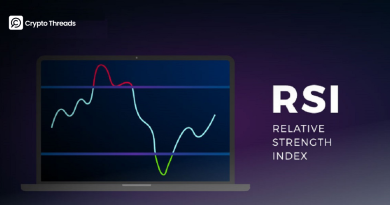Justin Sun’s Spaceflight and Blockchain Expansion in Space
Key Takeaways:
- Justin Sun completed his first spaceflight aboard Blue Origin’s NS-34, describing the experience as life-changing.
- He expressed deep reflection about Earth’s vulnerability, echoing what astronauts call the “Overview Effect.”
- The trip fulfills a $28 million seat won by Sun in 2021.
- Blockchain projects including Filecoin and Spacecoin are developing decentralized data systems for use in space.
- These technologies aim to improve tamper-resistance, reduce latency, and survive harsh cosmic conditions.
Justin Sun Returns from Space, Echoes the Overview Effect
Tron founder Justin Sun has returned safely to Earth after embarking on a suborbital flight aboard Blue Origin’s NS-34 mission. The commercial launch, which took place on Saturday, carried six passengers, including Sun, into space before landing in the West Texas desert.
Joining Sun on the flight were Alpha Funds founder J.D. Russell, meteorologist Deborah Martorell, entrepreneur Gökhan Erdem, real estate investor Arvi Bahal, and philanthropist Lionel Pitchford.
Sun had secured his seat back in 2021 with a $28 million bid, becoming the first person to reserve a spot on this particular mission. After the successful journey, he shared his emotional reaction to seeing Earth from space:
“Earth is so small, and it’s our home. We definitely need to do whatever we can to protect it.”
He added that from the window, he could almost see the entire planet, an experience that brought new clarity to the mission’s purpose. This moment of reflection aligns with a well-known psychological phenomenon among astronauts called the Overview Effect, a profound cognitive shift triggered by viewing Earth from orbit. It often inspires a heightened sense of unity, fragility, and environmental awareness.
Blockchain Aims for the Stars: From IPFS to Decentralized Satellite Networks
While Justin Sun’s flight marked a personal milestone, other crypto projects are laying the groundwork to extend blockchain’s reach beyond Earth’s atmosphere.
In January 2024, the Filecoin Foundation, in collaboration with Lockheed Martin, successfully tested the Interplanetary File System (IPFS) in space. This decentralized data protocol was used to transmit files between Earth and orbiting satellites, showcasing its potential for tamper-resistant communication in extraterrestrial environments.
Marta Belcher, president of the Filecoin Foundation, emphasized the need for decentralized storage systems in space. She pointed out that IPFS not only ensures data integrity but also helps prevent corruption caused by solar radiation, a major challenge for traditional hardware.
“Space systems face constant degradation. Blockchain-based storage solutions can offer resilience that centralized systems can’t,” Belcher told Cointelegraph.
Later in December 2024, a new player, Spacecoin XYZ, launched its first satellite into orbit as part of a decentralized physical infrastructure network (DePIN). The goal is to build a blockchain-powered communication framework that operates independently of Earth’s ground-based internet infrastructure.
As commercial spaceflight becomes more accessible and reliable, blockchain’s presence in outer space is no longer theoretical. The convergence of private space exploration and decentralized technology signals a future where on-chain systems may be embedded in the fabric of space communication, data transfer, and long-distance coordination.



